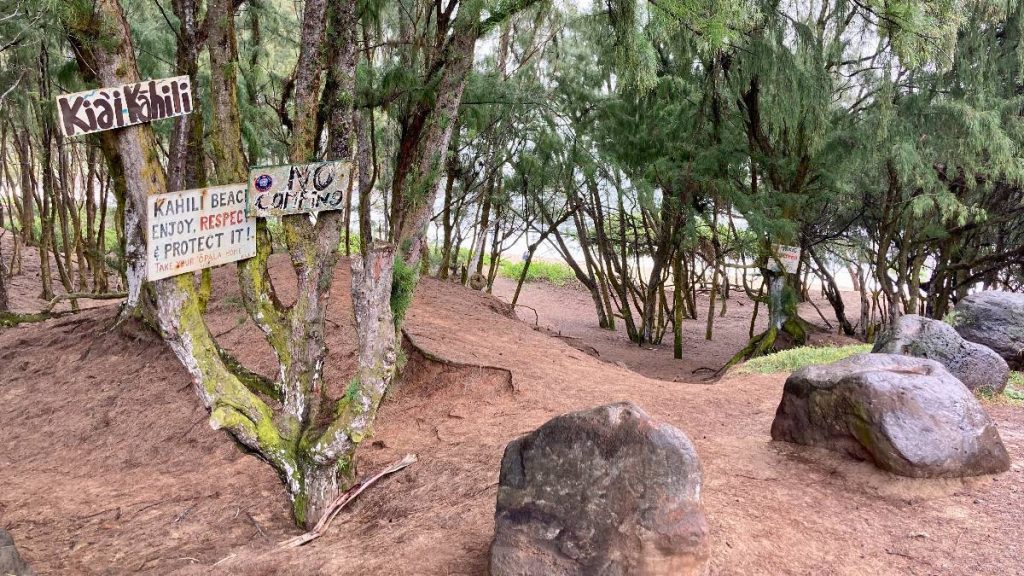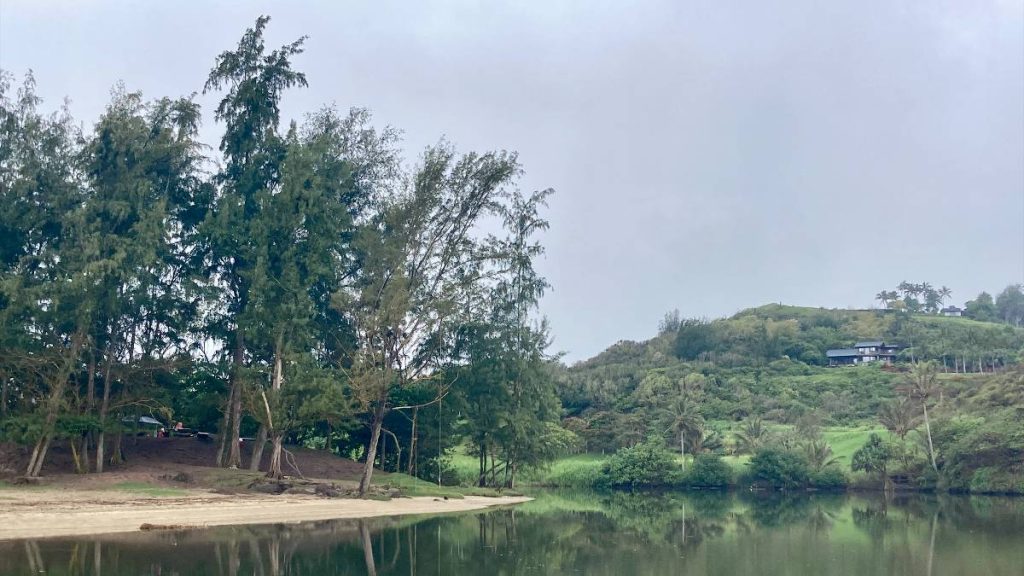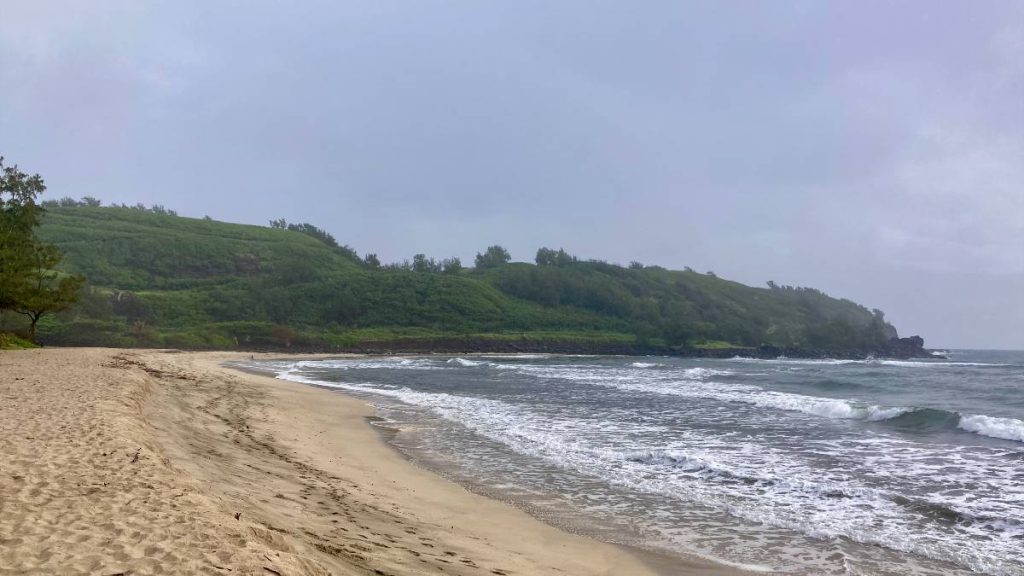Deprecated: stripslashes(): Passing null to parameter #1 ($string) of type string is deprecated in /mnt/efs/html/wp-content/plugins/template-scripts/src/AuthorBios/Frontend.php on line 129
Kīlauea School students spent school year learning from the land at Kāhili Beach

Summertime is nearly here for students on Kaua‘i, as the island’s public schools prepare to wrap up on Friday.
For 35 sixth graders at Kīlauea School on the North Shore of the island, it’s been an academic year like no other: Since last September, they’ve traveled to nearby Kāhili Beach for monthly outdoor science classes.
“One of the major focuses of sixth grade … is looking at your watershed,” said Kīlauea School science teacher Jon Kissida, standing near the mouth of the Kīlauea Stream feeding into the Pacific Ocean at the northernmost limit of Kāhili Beach, also known as Rock Quarry.
“Technically, this is the bottom of our ahupuaʻa,” Kissida continued, referring to a traditional Hawaiian land division extending from the mountains to the sea. “By coming down here and doing tests and stuff like that, you can connect back to what’s going on.”
Kissida and his students gathered at Kāhili Beach for the last time earlier this month. Their yearlong program had been led by steward and educator Kapule Torio of Hawai‘i Land Trust, a conservation nonprofit caring for eight community preserves located throughout the Hawaiian Islands.
Torio was raised in Kīlauea. He spent his youth bathing and diving for prawns in Kīlauea Stream and exploring the surrounding area.
“That was my training ground … My initial inspiration to learn how to love the land,” he said.
Torio has spent decades as an ‘āina, or land, -based educator, a responsibility he first embraced while a young man studying at Kaua‘i Community College in the late 1990s. He joined HILT in July 2023 and has spent the intervening months hosting school programs at the 17-acre Kāhili Beach Preserve. Students from six schools in total, including homeschool groups, have taken day trips to the site; Kīlauea School’s sixth-graders have been the only group to regularly visit.
“To come back and answer the kāhea [call] of HILT … It was like the place was calling me there to do what I can and share through me the place, and be part of that,” Torio said. “It’s like coming home and with another level of responsibility.”
Torio emphasizes the importance of Hawaiian voices in conservation.
“Bringing some native Indigenous knowledge and ʻike (knowledge; instruction; understanding) to a greater community – that’s needed,” he said at an Earth Day event in late April.
Over the past eight months, Torio’s tutelage was supplemented by a rotating cast of guest experts, including personnel from the Hawai‘i Department of Land and Natural Resources Division of Aquatic Resources – who helped Kissida’s students take water samples – and members of the nonprofit Surfrider Foundation, who discussed marine debris.
“You can look hear the waves from here and you can watch the birds fly over and swoop in and get their food,” said student Raiden Kamaka Pike. “We get to enjoy the outdoors instead of sitting in class all day.”
When asked if a fresh flock of Kīlauea sixth-graders will spend next school year at Kāhili Beach, Torio indicated the ball is in Kissida’s court.
“I want to expand out a little bit more,” the science teacher said. “The idea would be more field trips, this included, but then adding on and integrating even more community connections.”

Torio hopes the students learned more than the proper Hawaiian names associated with Kāhili Beach.
“I really hope that each and every one of them came away with that place being so special to them in their lives. It’ll always be there to support them,” he said. “No matter where they are in their lives, whatever they’re going through – whether it’s celebrations or struggles – that when they think back and they associate with Kāhili and the time we spent together, they’ll find support and strength in knowing that they were loved by this place in this time.”
Torio will lead a “Talk Story on the Land” event at Kāhili Beach Preserve on June 22. The guided interpretive hike will cover conservation, history, culture and biology related to the area. It is open to the public; for more information and to register, click here.
HILT is currently accepting applications for its 2024 Kāhili Beach Preserve Summer Internship, a coastal land management program open to a maximum of three high school students between the ages of 16-18. A $1,000 stipend will be rewarded upon completion of the internship; for more information and to apply, click here.
Sponsored Content
Notice: Function the_widget was called incorrectly. Widgets need to be registered using
register_widget(), before they can be displayed. Please see Debugging in WordPress for more information. (This message was added in version 4.9.0.) in /mnt/efs/html/wp-includes/functions.php on line 6114










